In this issue
Upcoming Events
Visual Thinking in the Classroom with Nick Sousanis
Friday, December 4th
2:10-3:00pm
Buttrick 202
Registration requested, but not required.
Graduate Student & Postdoc Workshop: Improv for the Millennial Learner
Monday, December 7th
3:30-5:00pm
Center for Teaching
CFT BLOG
Check out these recent posts to our blog.
Junior Faculty Teaching Fellow Spotlights: LaTonya Trotter and Courtney Cook
Graduate Fellow Wins Poster Award at Health Professions Education Research Day
New CFT Teaching Guide on Group Work
CFT Helps to Develop a Free Online Course on Undergraduate STEM Teaching
Junior Faculty Teaching Fellow Spotlight: Anna Richmond, Nursing
Follow The CFT Online
   
Share the CFT on social media!
 
Subscribe
Not a member of the CFT News and Events LISTSERV? Subscribe now to receive future newsletters.
Archives
|
December
2015
Junior Faculty Teaching Fellow Spotlight: Anita Disney
Each month, the CFT Newsletter highlights the work of our Junior Faculty Teaching Fellows. This month, Anita Disney, Psychology, talks about her teaching philosophy and interests.
Anita Disney
For many of our students, college will be their last engagement with structured learning. From the point of graduation forward, the extent to which we grow and integrate new ideas - arguably our ability to remain informed participants in society’s decision making processes - depends in large part on the extent to which we have become independent learners. I see college as an opportunity to facilitate a transition from a state in which learning is a process that happens to us, to a state in which learning is a skill set to be deployed. My goal as a classroom teacher and research mentor is to gently paint myself out of the picture, to produce lifelong learners who no longer need me as they build scaffoldings for new knowledge. Gently is important here, students vary in the extent to which they are ready to take ownership of their learning. One of the challenges I have faced is finding a balanced sweet spot between classical instruction and more student-centered approaches. This balancing is a work-in-progress, particularly in group instruction.
Consistent with the value I place on learning how to learn, I think of teaching (in the classroom and lab) as structured co-learning; everyone in the room is learning, myself included. One way I can be valuable to the process is as a model of a lifelong learner. I present myself not as a polished repository of knowledge, but as a professional learner, skilled in the art of asking and finding answers to questions. Yes I do know a lot of stuff these days, but that’s a side effect of what it means to me to be an academic and a scientist. I am curious by profession. I am not sure it does a service to students to conceal the crucial roles that not-knowing and knowing-how-to-find-out, play in my professional life. So I am an open co-learner in the classroom. My position is distinct in the room for having the privilege of allowing my current understanding of the material to (hopefully temporarily) provide the scaffold for everyone’s learning.
At the undergraduate level, I teach Drugs and Behavior and will soon be launching a new Lab in Neuroscience course. In these classes I take a skills-based approach, which is common nowadays, as it should be. I try to model the cognitive behaviors and skills I want to build in others; a questioning mind (which can be as simple as posing clear questions at the start of a week or a class), an openness to new ideas (bringing in material that’s new to me, from wide sources), a fearlessness in the face of (actually outright enjoyment of) unknowns, a deep comfort with finding - more than knowing - answers. A technique I use often in the classroom is actually one I learned from my grandmother; she would rarely answer a question, instead she would ask “Where (or How) could we find that out?” I name this in the classroom as a conscious strategy (and I credit my grandmother with its origin, I also recall and name the frustration it often yields).
I am also deeply interested in issues of access to education. My commitment to access has brought me to my newest pedagogical interest – Universal Design for Learning (UDL). I appreciate the way that this framing takes traditional accessibility/disability issues and expands them to look at the broad issues of inclusivity in the classroom. This is a new endeavor for me and my intuition is that there exists (either actually or potentially) an important and even broader application and interpretation of these principles than the ones I have encountered so far. I found UDL because I take a lifelong learning approach to teaching too. I am early in the process of developing my teaching skills, and I seek not the Right Way, but a toolkit of great ways to share my love for learning and my understanding of the skills that enable one to put that love into action.
Back to top

Visual Thinking in the Classroom – Workshop with Nick Sousanis, December 4th
by Derek Bruff, CFT Director
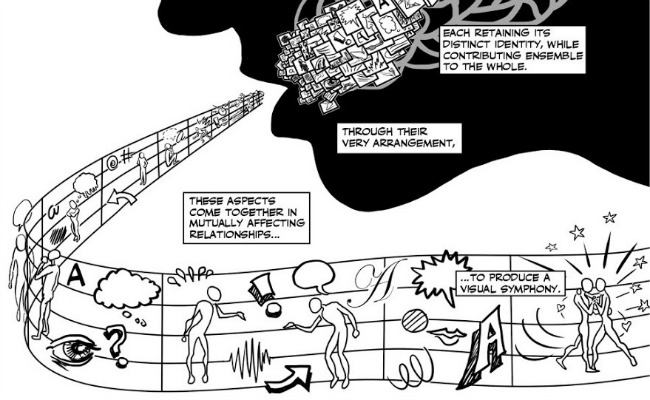 I’m excited to share that the Center for Teaching is co-sponsoring a workshop on visual thinking in the classroom next Friday, December 4th, led by Nick Sousanis. I’m excited to share that the Center for Teaching is co-sponsoring a workshop on visual thinking in the classroom next Friday, December 4th, led by Nick Sousanis.
Visual Thinking in the Classroom
Date: Friday, December 4th
Time: 2:10-3:00pm
Location: Buttrick 202
Facilitator: Nick Sousanis, University of Calgary
Registration requested, but not required.
In Nick Sousanis’ book Unflattening, written and drawn entirely in comic book form, he argues for the importance of visual thinking in teaching and learning. In this workshop, we will explore ways to use visual tools like comics and sketchnotes in the classroom as tools for thinking and learning. The workshop is open to all members of the Vanderbilt teaching community—prior drawing experience is not required!
Dr. Sousanis is on campus as a guest of the Film Theory and Visual Culture Seminar at the Robert Penn Warren Center for the Humanities. He has received a fair amount of attention for his doctoral dissertation, which was written and drawn entirely in comic book form. He will speak on that work, now available as the book Unflattening from Harvard University Press, at 11:30 on December 4th at the Warren Center in a talk titled “Unflattening: Reimagining Scholarship through Comics.” Where the lunchtime talk will focus on comics as a form of scholarship, the afternoon workshop will focus in visual thinking in teaching.
If you have any interest in visual thinking in the classroom (see, for instance, the CFT’s teaching guide on the subject or my collection of resources), please join us Friday, December 4th, at 2:10 for what will be an engaging and interesting workshop.
Thanks to professors Jennifer Fay (Cinema & Media Arts) and Helen Shin (English), as well as staff at the Warren Center, for making this workshop possible!
Back to top

Upcoming Teaching Workshop for Graduate Students & Postdocs
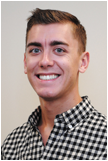 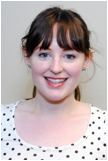 Improv for the Millennial Learner Improv for the Millennial Learner
Never far from an Internet connection, today’s university students move indiscriminately between the online and physical realms. The presence of these “digital natives” (Prensky, 2001) on college campuses nationwide—and the attendant fear that our work as researchers and educators will be indecipherable to them—has fueled a number of initiatives in higher education, from changes in course management platforms to the nigh ubiquitous job postings for digital humanities scholars. Yet, the urgency that undergirds these calls for innovation ignores the hybridized experience of Millennial Learners. In this workshop, we will explore techniques for engaging digital natives using improvisation techniques. Participants will learn about relevant research in teaching and learning before moving through a series improv exercises adapted for the classroom.
Date: Monday, Dec 7th
Time: 3:30-5:00pm
Location: Center for Teaching
Facilitators: Ben Galina & Jane Hirtle
Graduate Student & Postdocs Register Here
Back to top

Course Design Consultations for University Course Proposals
 Last month Chancellor Zeppos launched the University Courses initiative, designed to promote cross-college teaching at Vanderbilt. These courses, taught by faculty outside of their home department or school or co-taught by faculty from different schools or colleges, will provide new opportunities for students at Vanderbilt to consider big questions and hard problems from multiple perspectives. Last month Chancellor Zeppos launched the University Courses initiative, designed to promote cross-college teaching at Vanderbilt. These courses, taught by faculty outside of their home department or school or co-taught by faculty from different schools or colleges, will provide new opportunities for students at Vanderbilt to consider big questions and hard problems from multiple perspectives.
Faculty members are invited to meet with the consulting staff at the Center for Teaching as they develop proposals for University Courses. CFT consultants are happy to meet with you or your course team to help clarify teaching and learning goals, identify teaching strategies that will help meet those goals, and navigate the particular challenges of University Courses.
Teaching consultations at the CFT are always tailored to the needs of the instructors. Each course has its own goals, each educator has his or her own teaching philosophy and style, and instructors come to us in various stages of preparation and with various questions about teaching and learning. In the case of University Courses, a consultation might pay particular attention to (1) teaching students you don’t know, (2) teaching across disciplines, or (3) team teaching.
To schedule a course design consultation—for a University Course or any other course—simply call the CFT at 322-7290 or email cft@vanderbilt.edu.
Back to top

Upcoming Blackboard Support Offerings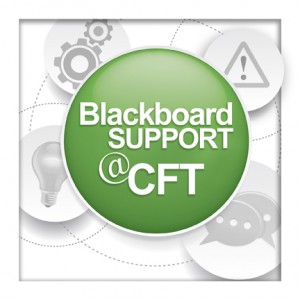
Textbook Integration with Blackboard
Blackboard support at the CFT has been working with the bookstore, textbook publishers, and stakeholders across campus to integrate online textbook content with Blackboard courses. Beginning in the spring semester, many instructors will be able to connect their students’ online textbook work with Blackboard’s grade book and content areas.
Please contact us or visit us during drop-in support hours to learn more about whether your textbook provides Blackboard integration and how that integration may work in your courses.
Drop-in Support Hours for December
Blackboard Support at the CFT will be offering drop-in times in November and December for faculty, graduate students, and staff using Blackboard. Come get technical and pedagogical support from a team of Blackboard specialists during our drop-in support hours:
Monday 12/7/15 1-3pm
Monday 12/14/15 1-3pm
Please contact us at blackboard@vanderbilt.edu for more information.
Back to top

BOLD Fellow Presents at 2015 American Institute of Chemical Engineers Conference
By Dani Picard, CFT Graduate Teaching Fellow
Faizan Zubair, a PhD student in Chemical Engineering and CFT BOLD Fellow, presented his research on an online instructional module at the 2015 American Institute of Chemical Engineers (AIChE) annual conference in Salt Lake City, Utah.
Faizan developed an online learning module on thermodynamic efficiency through the Center for Teaching’s BOLD program with his faculty mentor Paul Laibinis, Professor of Chemical and Biomolecular Engineering. The project investigated the effectiveness of Kahn-style instructional videos in promoting student learning in an undergraduate Chemical Engineering course at Vanderbilt.
Faizan focused on three levels of student assessment. Formative assessments allowed him to determine which topics were most challenging to his students. Summative assessments evaluated the overall effectiveness of the new online methods. Finally, student perception surveys captured student attitudes towards the introduction of new teaching techniques.
Overall, the videos led to a significant increase in student performance, and students perceived the videos as helpful in reinforcing thermodynamic concepts.
“The development and application of interactive videos is an important addition to the traditional classroom,” said Faizan. “It provides a permanent resource for students outside of class.”
Faizan wanted to develop video modules in engineering courses because he found them useful in his own education in fields outside of engineering. “I was home-schooled for grades 9-12 in Pakistan. In addition to learning through books, I used MIT's OpenCourseWare for learning linear algebra and statistics. The availability of high quality educational material while I was in Pakistan made an impact in my learning. In addition, I used Khan Academy to learn about wide ranging topics including investment in stocks and the real estate market. Arguably, the best source of online education has been YouTube. Thus, I have benefited online education for as long as I have had access to the internet.”
As an engineering student though, most of his instructional experiences were more traditional, including whiteboards, PowerPoint lectures, and in-class problem sets. Faizan chose to participate in the BOLD program because it offered him an opportunity to create online instructional tools and assess their impact on student learning – especially in engineering courses.
In reflecting upon his project, he is excited about the possibilities for future classes: “Now that I have experience with designing videos, I would be more comfortable using this tool in my future teaching. The project has provided me a framework to evaluate the effectiveness of new teaching methods.”
You can learn more about Faizan’s project and learning module on the BOLD website.
Back to top

BOLD Fellows Program Now Accepting Applications for 2016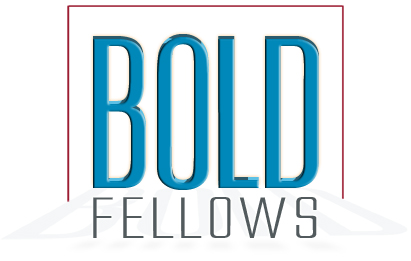
The BOLD Fellows program is designed to help graduate student/faculty teams build expertise in developing online instructional modules grounded in good course design principles and our understanding of how people learn. STEM faculty members partner with graduate students or postdocs to design and develop online modules for integration into a course, either as a tool to promote flipping the classroom, a module for a blended course, or a unit to supplement an existing course.
The teams implement these modules in an existing class and investigate their impact on student learning. The program is a collaboration between Vanderbilt’s Center for Teaching and the CIRTL Network (Center for the Integration of Research, Teaching, and Learning). Example projects are described in the BOLD project gallery.
This two-semester program is divided into a “design and development” semester, in which Fellows receive intensive training and support as they develop their module, and an “implementation and assessment” semester. We are currently recruiting Fellows to begin the program in January for implementation and assessment in the following Fall semester. The Fellowship carries a modest stipend as well as the opportunity to apply for travel funds to share this work at a conference. For more information about the program, including a video from the inaugural group of BOLD Fellows and application information, see the CFT’s BOLD program page.
Applications are due December 4; decisions will be made by December 15.
Back to top

Local CIRTL Workshop on Evidence-Based Teaching
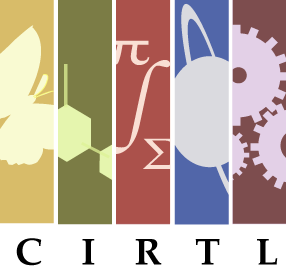 VU-CIRTL is conducting an Evidence-based Teaching Workshop January 7th and 8th. The workshop is designed for future faculty with no experience with teaching as research however all graduate students, post docs, faculty, and staff are welcome. VU-CIRTL is conducting an Evidence-based Teaching Workshop January 7th and 8th. The workshop is designed for future faculty with no experience with teaching as research however all graduate students, post docs, faculty, and staff are welcome.
Workshop topics include how people learn, challenge-based learning, course design, assessment, classroom management, classroom technology, and scholarly resources. Attendees will achieve the Associate level as an outcome of this workshop.
The workshop is offered at no cost and food and beverages are provided. More information and an application is available at the Vanderbilt CRITL website.
Back to top
|

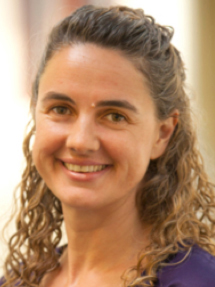
 I’m excited to share that the Center for Teaching is co-sponsoring a workshop on visual thinking in the classroom next Friday, December 4th, led by
I’m excited to share that the Center for Teaching is co-sponsoring a workshop on visual thinking in the classroom next Friday, December 4th, led by 

 Last month Chancellor Zeppos launched the
Last month Chancellor Zeppos launched the 


 VU-CIRTL is conducting an Evidence-based Teaching Workshop January 7th and 8th. The workshop is designed for future faculty with no experience with teaching as research however all graduate students, post docs, faculty, and staff are welcome.
VU-CIRTL is conducting an Evidence-based Teaching Workshop January 7th and 8th. The workshop is designed for future faculty with no experience with teaching as research however all graduate students, post docs, faculty, and staff are welcome.